Prosegur: making the world a safer... and more sustainable place
Prosegur's commitment to reducing its environmental impact forms a fundamental part of its corporate strategy. The renewal of its vehicle fleet and the use of alternative fuels, the commitment to more efficient lighting and air conditioning solutions and the circular economy, the use of technology to combine effectiveness and sustainability and its emissions compensation plan are clear examples of this firm commitment.
As the iconic line from the film version of Spiderman said, ‘with great power comes great responsibility’, and living up to that responsibility reveals how that power is managed.
Prosegur's position as a global benchmark in the field of private security is inevitably linked to the Spanish company's commitment to achieving the highest marks in all quality standards in its sector, including the ambitious environmental management objectives that preside over its work in all the businesses and countries where it operates. The ‘E’ in Enviromental is thus a basic pillar within the ESG (Environmental, Social and Governance) criteria that are at the core of its corporate strategy.
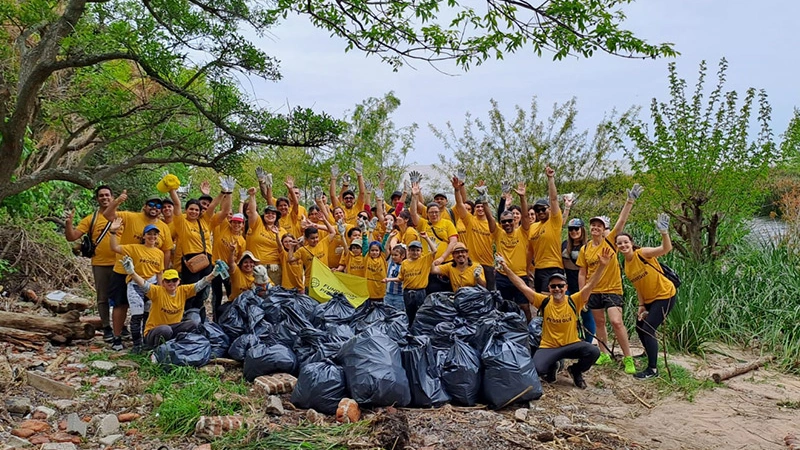
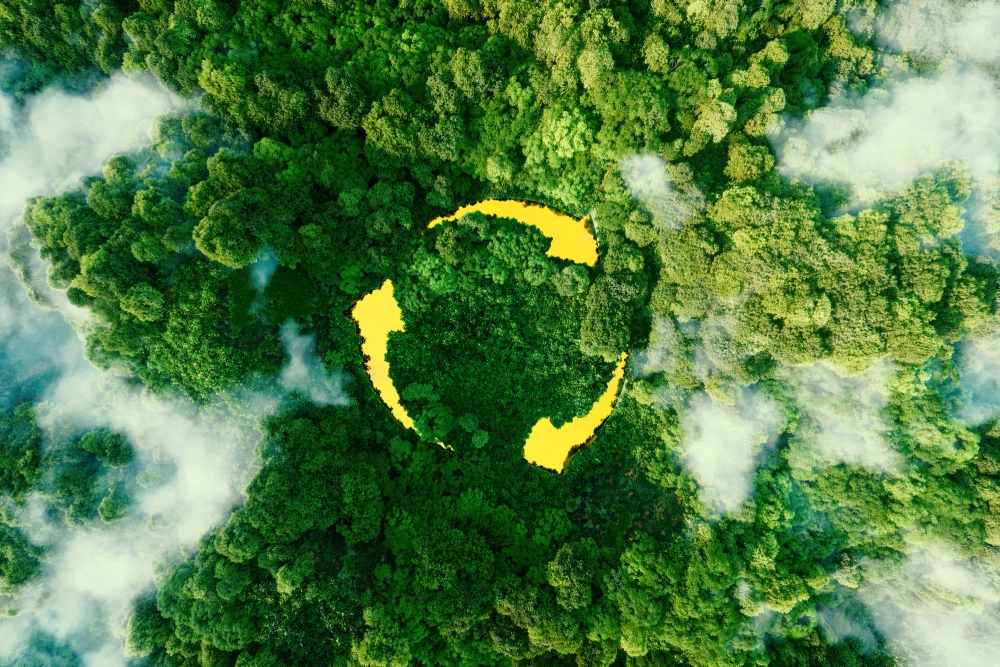.webp)
Prosegur focuses primarily on the provision of services, not on the transformation or manufacturing of products, so its environmental impact is limited. Even so, the company is aware that preserving the environment is vital and, as a result of this awareness, in 2021, it approved an ambitious Sustainability Master Plan. Divided into four areas of action, this roadmap went one step beyond international environmental legislation and reflected the company's high level of commitment. In 2024, a new framework will be approved, with goals and initiatives updated to the challenges that the company must face in the coming years.
‘In the past year, Prosegur has implemented a new global standard that applies a more robust process in the capture and analysis of environmental data.’
These plans are the common framework for action, but far from being satisfied with them, and imbued with the ‘great responsibility’ that comes with its position of relevance, Prosegur extends this commitment to all its employees, through communication campaigns, training activities and corporate volunteering.
A clear example of this, according to Antonio Rubio, general secretary of Prosegur, are the activities channelled through the Global Integral Wellbeing Programme, Pro360, ‘which operates in the 34 countries where the company operates and promotes care for the environment through information and competitions on mountains, global warming, wetlands, climate or recycling, as well as the promotion of the bicycle as a means of transport, among many other initiatives’.
Permanent renewal of the vehicle fleet
Having vehicles that combine efficiency, low emissions and respect for the environment is one of the key axes of this internal plan to optimise resources and reduce environmental impact, as can be seen in the permanent—and almost obsessive—process of renewing the vehicle fleet (armoured and light) in which the company is immersed.
In addition to the progressive and constant incorporation of electric and hybrid vehicles, which Prosegur selects according to its different operational needs, by virtue of their autonomy, energy efficiency and capacity to reduce CO2 emissions, the modernisation of the fleet includes the growing use of alternative fuels, such as natural gas and biodiesel, with which a pilot was carried out last year and which will be incorporated on a regular basis, whose impact is significantly lower than that of traditional fossil fuels.
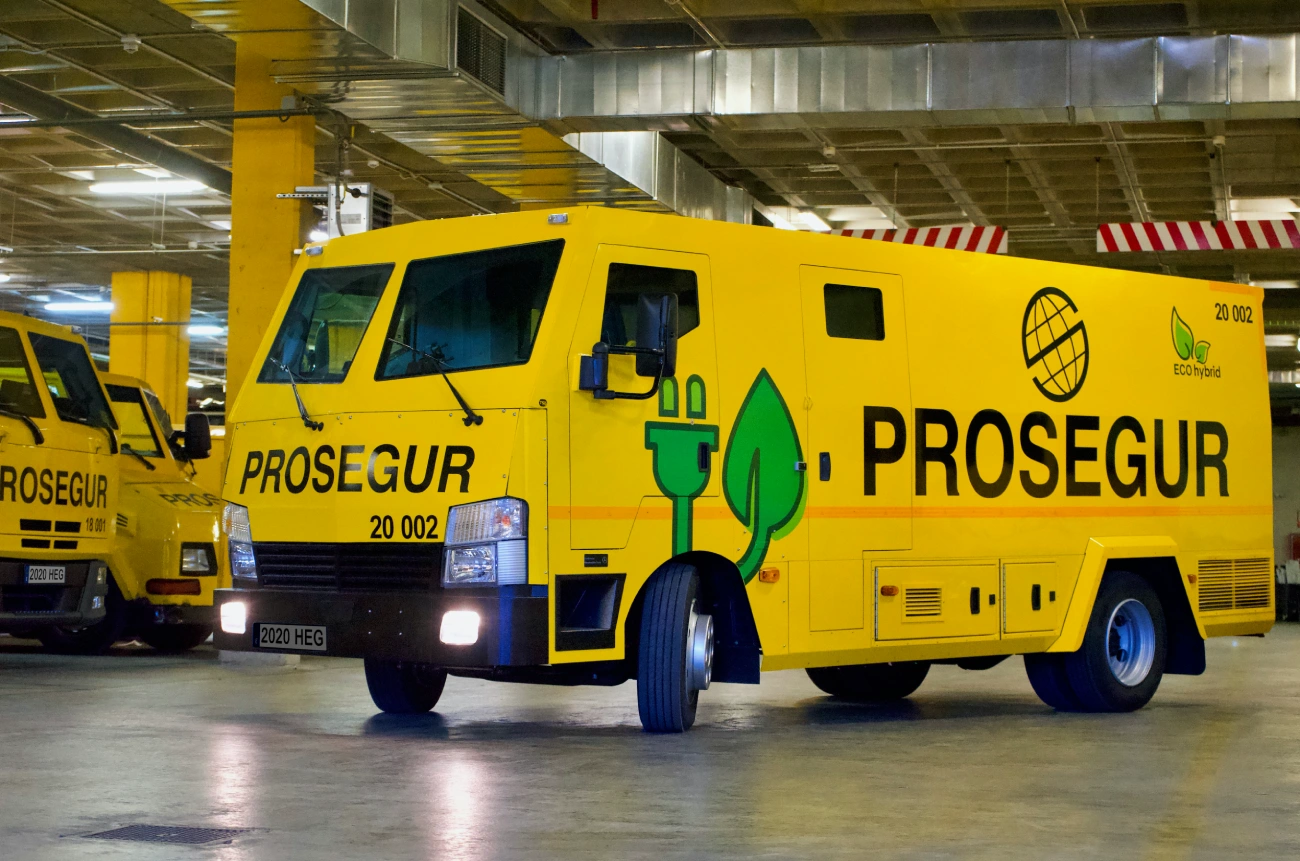
‘Of the 10,127 light vehicles that Prosegur had registered in late 2023, 26.1% already had an ECO environmental category.’
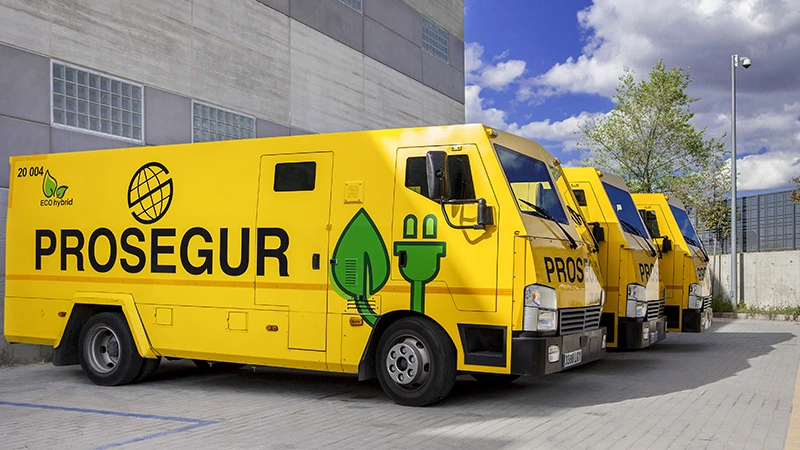
And the figures more than support this underlying philosophy. Of the 10,127 light vehicles that Prosegur had registered in late 2023, 26.1% (2,642, in round numbers) already had an ECO environmental category (electric, hybrid and alternative fuels with lower emissions, such as LPG or CNG). During the past year, 471 vehicles were added to this total (no less than 16.4% of all light-duty vehicles that were replaced), including 202 all-electric vehicles.
In addition to the modernisation of the light fleet, measures have been adopted to control the fuel consumption of Prosegur Cash's armoured vans, the removal of the oldest and most polluting units and collaboration with different companies in the automotive sector, universities and scientific research centres to develop more sustainable mobility solutions for a sector that has particular needs and works with specific vehicles.
Advanced and efficient telemetry
This necessary overhaul of vans and light vehicles runs in tandem with other measures to ensure that efficiency, safety and speed of transport are compatible with respect for the environment in which these vehicles circulate, regardless of their size, and here ‘advanced telemetry’ is the keystone.
But what is telemetry? Rubio vividly illustrates the benefits of this tool in his summary. ‘Telemetry systems analyse vehicle routes in real time—optimising journeys by reducing travel time and distance—and monitor driving behaviour (acceleration, braking, average speed, etc.) to identify and correct inefficient driving habits and encourage more sustainable driving'. In addition, the system also allows real-time monitoring of vehicle status, thereby reducing the risk of breakdowns while also improving fuel efficiency.
To date, Prosegur has telemetrized more than 3,000 units of its current fleet, 'using sensors and data analysis, to achieve an estimated additional reduction in consumption of up to 10%', says its general secretary.
Savings, efficiency and sustainability are also the principles that inspire the end-to-end digitalisation of employees' corporate travel “a process that, in addition to reducing the carbon footprint', says Rubio, ’streamlines bookings and enhances autonomy, traceability, comfort and security during the trip'. The development of this type of corporate travel in Spain was recognised in 2022 with the Travel Policy Digitalisation Best Practice Award.

Energy efficiency and recycling
The use of LED technology instead of traditional lighting systems, the introduction of more efficient air conditioning systems, together with improvements in building management, recycling and the commitment to the circular economy, and sustainable waste management also form part of the corpus of measures that Prosegur has been implementing in recent years as part of its commitment to the preservation of the environment.
Throughout 2023, the Spanish company completed 23 projects to replace lighting fixtures with LED technology and implemented energy consumption control equipment in eight of its markets, both of which, in Rubio's words, resulted in ‘an annual reduction of 490 MWh, equivalent to 95 tonnes of CO2’.
The company has already optimised 85% of its facilities worldwide with LED lighting systems, and aims to soon reach 100% in facilities where feasible due to their location, ‘in addition to promoting power self-generation in buildings with roofs capable of supporting photovoltaic systems’, says Rubio.
‘The company has already optimised 85% of its facilities worldwide with LED lighting systems.’
The company's commitment to recycling and the circular economy is not just verbal, but is materialised in two specific initiatives: a retrofit project, which gives a second and profitable life to the bodywork and components of armoured vans, and a computer recycling programme, known as Brecha Digital (Digital Gap), for recovering and channelling computers through the Prosegur Foundation to schools participating in the Piecitos Colorados educational project, which the company has been promoting since 2006 in several Latin American countries.

The spirit that beats under the philosophy of the circular economy permeates all business units and the list of initiatives is as extensive as it is revealing of the company's commitment to sustainability: waste containers segregated by nature at all operational headquarters; reduction of toner and paper waste, thanks to a standardised printing model between countries and the promotion of teleworking; uniforms made with eco-design criteria to prolong their useful life; eco-friendly seals and recycled reels for the shrink-wrapping of currency used by Prosegur Cash in Spain, Portugal and Germany, or the recovery and recycling of alarms, an initiative that, in 2023 alone, saved the planet 22 tonnes of electronic waste.
Emissions offsetting
Prosegur's firm statement of responsibility towards its surroundings is reflected not only in its ongoing efforts to limit the impact, greater or lesser, of its operations, but also in the measures it implements to offset a significant portion of the equivalent CO2 emissions it generates.
The Emissions Offsetting Programme is just four years old, an initiative that, ‘in terms of scale and objectives, is a pioneer in our sector, and to date it has developed actions that compensate in an equivalent way the CO2 emissions derived from its activities in Europe, Central and North America’.
The mere enumeration of the initiatives to which the Secretary General refers gives an idea of their magnitude. The Bundled Solar Photovoltaic project, which Prosegur has supported this year in India, has replaced 1,207.5 MW of conventional electricity with renewable energy in 7 states in the country, which means the reduction of almost two million tonnes of CO2 per year and the creation of local employment for the installation and maintenance of solar panels.
In previous years, the Spanish company has supported two projects in Brazil, for the generation of 100% renewable energy and for the reduction of methane emissions in municipal waste, and a third initiative in the Punta Arenas Wind Farm (Chile), which provides clean energy for some 60,000 homes and avoids the emission of 119,000 tonnes of CO2 per year.
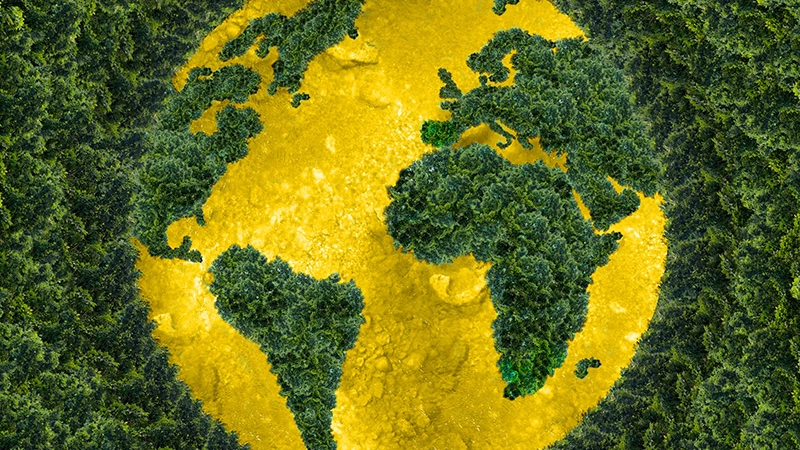
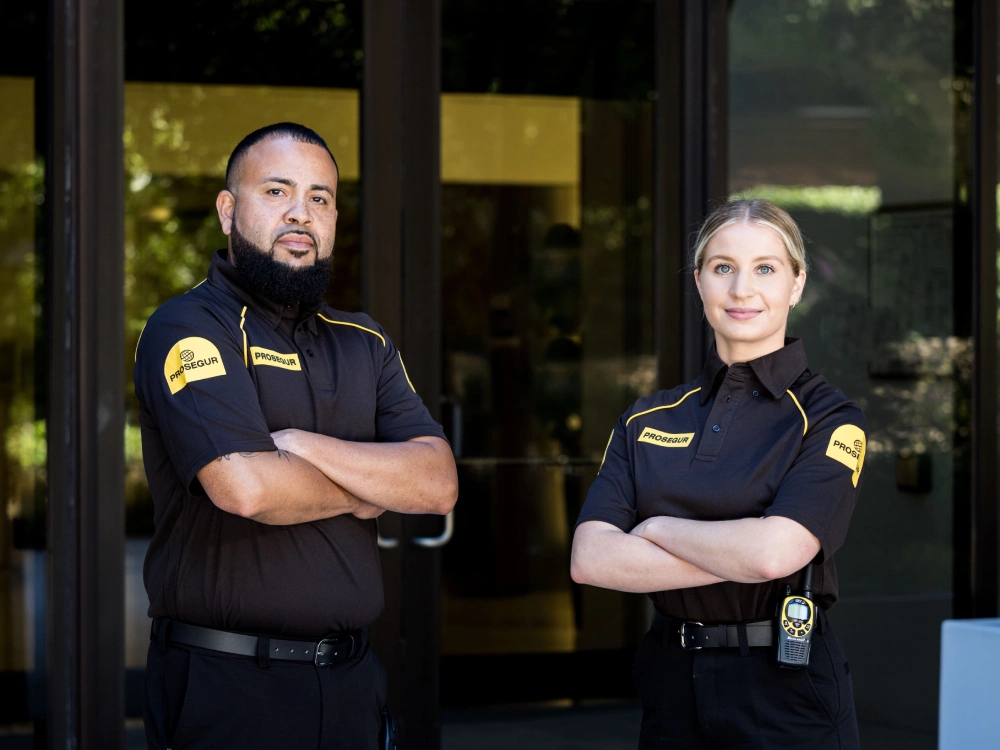.webp)

.webp)

.webp)
